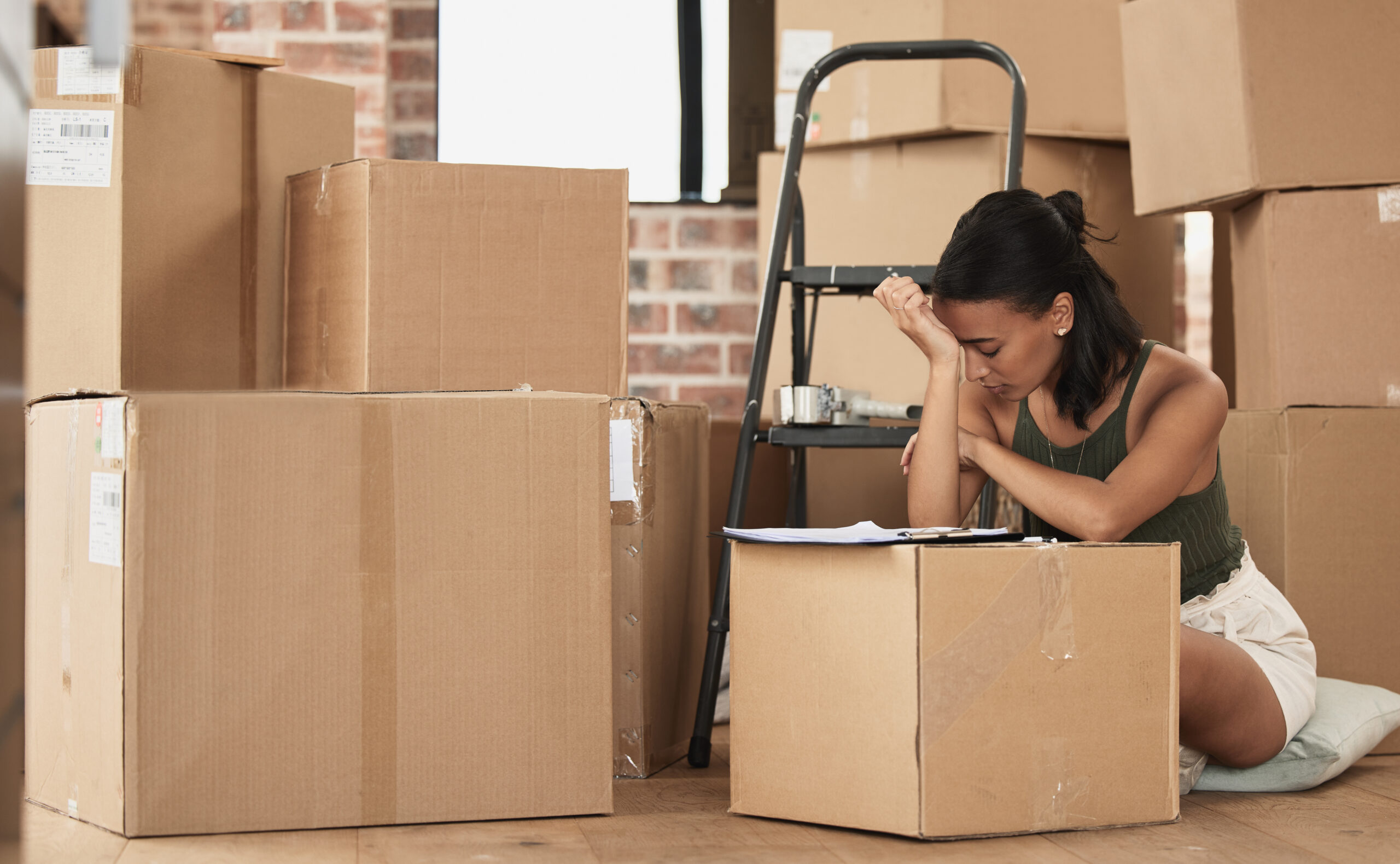
Whether you’re moving across town or across the country, relocation can take its toll on your health and mental well-being. The packing and unpacking, organizing and cleaning, and physical activity involved in a move can be stressful to say the least. In fact, moving is considered stressful, with research from the University of Auckland showing that the average stress level of homeowners is significantly higher than renters, and those who move more frequently are more stressed than those who don’t.
The impact of moving stress goes beyond just feeling overwhelmed. According to research, residential mobility has significant impacts on individuals’ mental health, and can be associated with more mental health problems (e.g., depression, schizophrenia, and anxiety). Additionally, ongoing, chronic stress can trigger or worsen many serious health problems, including mental health problems, such as depression, anxiety, and personality disorders, as well as cardiovascular disease, including heart disease, high blood pressure, abnormal heart rhythms, heart attacks, and strokes.
So, how do you manage to stay healthy when moving? We’ve put together evidence-based tips that can help you stay as fit as possible throughout a commercial or residential move.
1. Prioritize Physical Activity
If you can’t make it to the gym during your move, just make sure to go for a run or take a long, brisk walk. Research supports this approach: while you’re exercising, make a conscious effort to pay attention to your body and the physical (and sometimes emotional) sensations you experience as you’re moving. This mindfulness element can help break out of the cycle of negative thoughts that often accompany overwhelming stress.
The Mayo Clinic emphasizes that exercise should be part of your stress management plan, as physical activity is one of the most effective stress-relief activities available.
2. Maintain a Healthy Diet
Don’t miss breakfast and remember to eat plenty of fruits and vegetables. Poor dietary choices during stressful times can compound the problem. Research shows that what you eat can affect your stress levels. A diet rich in fruits, vegetables, lean proteins, and whole grains can help you feel better and have more energy.
Additionally, avoid the temptation to rely on quick fixes: although alcohol and nicotine may feel like they provide momentary relief, alcohol is a depressant and nicotine creates cravings, and both can contribute to mental health problems in the short and long term.
3. Don’t Forget the Water
Stay hydrated! While you are packing, going through storage, or moving your furniture, it is easy to forget to drink water. Dartmouth Health experts recommend drink six to eight glasses (48-64 ounces) of water per day as part of a comprehensive stress management strategy.

4. Practice Stress Management Techniques
It can be stressful watching the movers transport your belongings. Why not make a quick phone call or do a little cleaning during this time. Unpacking can also be intimidating. Remember, there is no race when you move, so focus on one room at a time.
The American Institute of Stress suggests that every day, annoyances, interruptions, and slights chip away at our resilience. To combat this, experts recommend:
- Deep breathing exercises: the fastest way to reduce stress is by taking a deep breath and using your senses
- Mindfulness practices: mindfulness meditation can also reduce the effects of stress-related problems such as anxiety, insomnia, poor concentration and low moods
- Time management: poor time management can cause a lot of stress. When you’re stretched too thin and running behind, it’s hard to stay calm and focused
5. Prioritize Sleep and Rest
The first thing you should unpack is your bedding. This way, you definitely have a place to kick back and relax after a hard day’s work. This advice is backed by research showing that sleep problems are common when you’re struggling with stress, and can even make the symptoms of stress worse.
The CDC emphasizes the importance of sleep for stress management, recommending that adults get enough sleep. Go to bed and wake up at the same time each day to help you sleep better. Adults need 7 or more hours per night.

Additional Evidence-Based Strategies
Create a Daily Reset Routine
Every day you brush your teeth, exercise, and prepare healthy food, because you know that it’s necessary for your physical health. In the same way, you need to take steps each day to protect your mental health. Develop what experts call a “daily reset”—something that you do every day to buoy your mental health. A daily reset might be walking the dog in the morning, playing the guitar for fifteen minutes at the end of the workday, or meditating before bed.
Maintain Social Connections
Connect with others. Talk with people you trust about your concerns and how you are feeling. Research shows that no one gets through this life alone, certainly not if we want to build a life of success and happiness. Maintain relationships with friends and colleagues to provide you with the support you need.
Embrace the Imperfection
Psychology Today recommends accepting that moving is inherently messy and stressful. In many cases, it becomes even more challenging than we anticipated. By avoiding the perfectionist trap, you are honoring the process of moving while modeling healthier expectations, which will open the door to things being more manageable.
Time in Nature
Research has shown significant benefits from outdoor exposure: spending at least 20 to 30 minutes immersed in a nature setting is associated with the biggest drop in cortisol, a major stress hormone. This can help reduce various physical ailments associated with moving stress.
When to Seek Professional Help
Moving stress is normal, but it’s important to recognize when you might need additional support. The Mental Health Foundation notes that in the past year, 74% of people have felt so stressed they have been overwhelmed or unable to cope.
If you’re experiencing persistent symptoms such as:
- Difficulty sleeping despite following good sleep hygiene
- Persistent anxiety or depression
- Physical symptoms like headaches or digestive issues
- Feeling overwhelmed for extended periods
Consider reaching out to a healthcare professional or mental health provider.

Stay Healthy This Move
Moving doesn’t have to derail your health and well-being. By implementing these evidence-based strategies—from maintaining physical activity and proper nutrition to practicing stress management techniques and prioritizing sleep—you can navigate your relocation while protecting both your physical and mental health.
Remember, as research shows, stress levels decrease over time when individuals don’t move, suggesting that once you’re settled in your new home, the acute stress of moving will naturally diminish. Until then, be kind to yourself and use these tools to maintain your health throughout the transition.
At BMS Moving & Storage, we understand that moving is more than just transporting belongings—it’s a major life transition that affects your entire well-being. Our professional teams are trained to minimize the stress of moving day, allowing you to focus on maintaining your health and settling into your new home. Contact us at (877) 638-1265 to learn how we can make your move as smooth and stress-free as possible.



